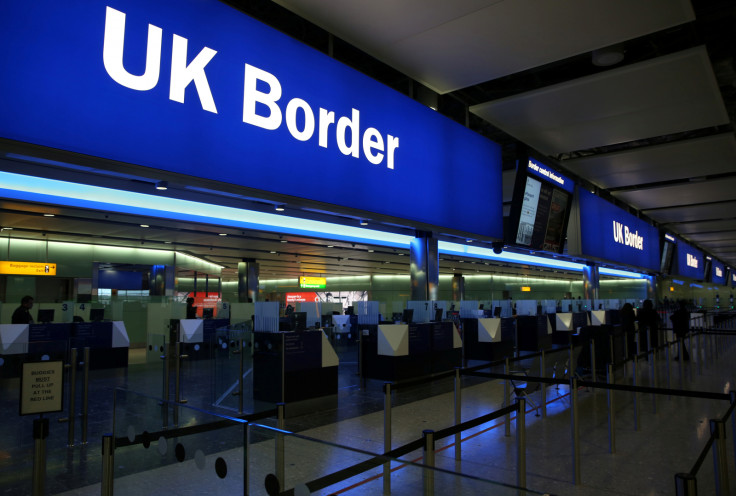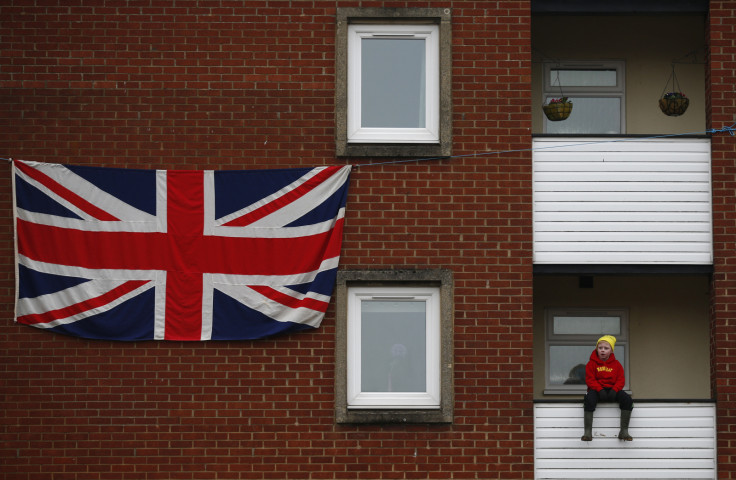Brexit: What EU migration has done for the UK
Despite the numerous positive benefits, it may be in private-rented accommodation and low-paid work where the impact is most perceived

Contrary to the negative stereotypes perpetuated by many politicians and sections of the media, a comprehensive new report from the UK's Migration Advisory Committee (MAC) has found that migration from the EU has a positive impact on many areas of society.
The long-awaited report made a set of recommendations which the government has promised to consider before announcing its own post-Brexit immigration strategy. The key recommendation is that, unless there is a specific trade deal reached between the EU and UK which makes special provision for immigration, EU citizens should be treated no differently from non-EU citizens under a new UK-managed migration system.
Before reaching its recommendations, the MAC undertook an extensive consultation. It concluded that migration from the European Economic Area (EEA) – the EU states plus Iceland, Liechtenstein and Norway – does not, on the whole, have a negative impact on society.
It has little or no impact on the overall employment, unemployment and wages of UK-born workers. It has a positive impact on productivity and innovation, especially so from highly skilled migration. EEA migrants also contribute more in taxation than they consume in services, especially so for the NHS and social care.
Nonetheless, the report noted that any negative impact of migration may be felt more by lower-skilled workers, although this finding is "subject to uncertainty".
Housing and education
The MAC also investigated areas regarded as particular pressure points: housing and education. Despite the increased numbers of migrant children in schools, the MAC found no negative impact on parental school choices or school attainment. Children who speak English as a second language outperform native English speakers.
The situation for housing is more complex and geographically variable. The impact of migration needs to be understood against wider pressures due to housing shortages, especially in some regions. Migrants are underrepresented in social housing but overrepresented in privately rented accommodation. So, any impact on housing supply is likely to be felt in the private rental market.
<axiframe id="LBRqi" class="tc-infographic-datawrapper" style="border: none;" src="https://datawrapper.dwcdn.net/LBRqi/1/" frameborder="0" width="100%" height="400px">
These findings help explain some of the ways in which anti-immigrant feelings against EEA migrants have grown in the UK recently. Despite the numerous positive benefits, it may be in private-rented accommodation and low-paid work where the impact is most perceived. However, as the MAC report emphasises, these pressures cannot be understood in isolation from wider policies around working pay and conditions and housing supply. As we migration scholars have long argued, migrants are often the scapegoats for deeply-rooted structural problems.
A focus on high-skilled workers
Given evidence of the economic advantages of highly-skilled migration, it's no surprise then that the MAC recommended retaining this route from EEA countries. Any changes would not apply to the 3m or so EU nationals already living and working in the UK, or those who arrive before the end of the proposed Brexit transition period in December 2020.
Tier 2 visas are the main entry route to the UK for non-EEA migrants. The MAC recommended that rather than creating a new visa, EEA migrants should be treated in the same way as people from outside the EEA. However, the report recommended several modifications, including the removal of the current cap on numbers. The £30,000 salary threshold should be retained but the list of eligible jobs should be extended. "Medium-skilled" jobs should also be eligible for Tier 2 visas it says, presumably to ensure supply of much needed staff in the NHS, for example. As an added incentive to attract skilled migrants, the report recommended that it should be easier for Tier 2 visa-holders to change jobs once here.
Despite the absence of conclusive evidence on the impact of low-skilled EEA migration, the MAC was not inclined to recommend any special visa scheme for this group – with the possible exception of seasonal agricultural workers. However, it's worth noting that this recommendation may be overridden by any UK-EU trade deal that may have a special free movement arrangement for EU citizens.
Overall, there are few surprises in the report. Its recommendations are driven by an economic agenda that privileges certain groups of workers perceived to be most beneficial to the UK economy because they are the least "drain" on public resources.

Yet any closure of UK borders to lower-skilled EEA workers after Brexit is controversial and probably unworkable given the UK's reliance on large numbers of low-skilled workers in key sectors of the economy.
The care sector is a point in question. The report acknowledges that care work is often low paid and it is difficult to recruit and retain staff. However, the MAC makes no specific provision for this sector in their new migration vision. The social care sector, which is likely to grow given an ageing population, currently employs significant numbers of migrants, increasing numbers of whom are from the EEA. Mostly low paid, they would not qualify under the Tier 2 scheme if the salary threshold remains at £30,000.
The only other option mentioned in the report is an expansion of the current youth mobility scheme, which currently allows young migrants from certain countries to work in the UK for a maximum of two years. This is hardly likely to provide the continuity of experienced care workers which is so badly needed to provide an appropriate service to the UK's ageing population. And if such a youth mobility scheme is expanded to meet demands for lower skilled labour, it could effectively become a "guest worker" programme – which could have consequences on the well-being of those involved.
The government should make a careful assessment of the MAC's recommendations before announcing its immigration policy. This should not be focused only on the potential losses and gains for the UK economy. The consequences of such a selective approach to EEA migration on the rights of UK nationals also need to be considered, as they may find their rights to go and work in other European countries become restricted in a tit-for-tat reaction.
Louise Ryan, Professor of Sociology, University of Sheffield and Majella Kilkey, Reader in Social Policy, University of Sheffield
This article is republished from The Conversation under a Creative Commons license. Read the original article.

© Copyright IBTimes 2025. All rights reserved.




















